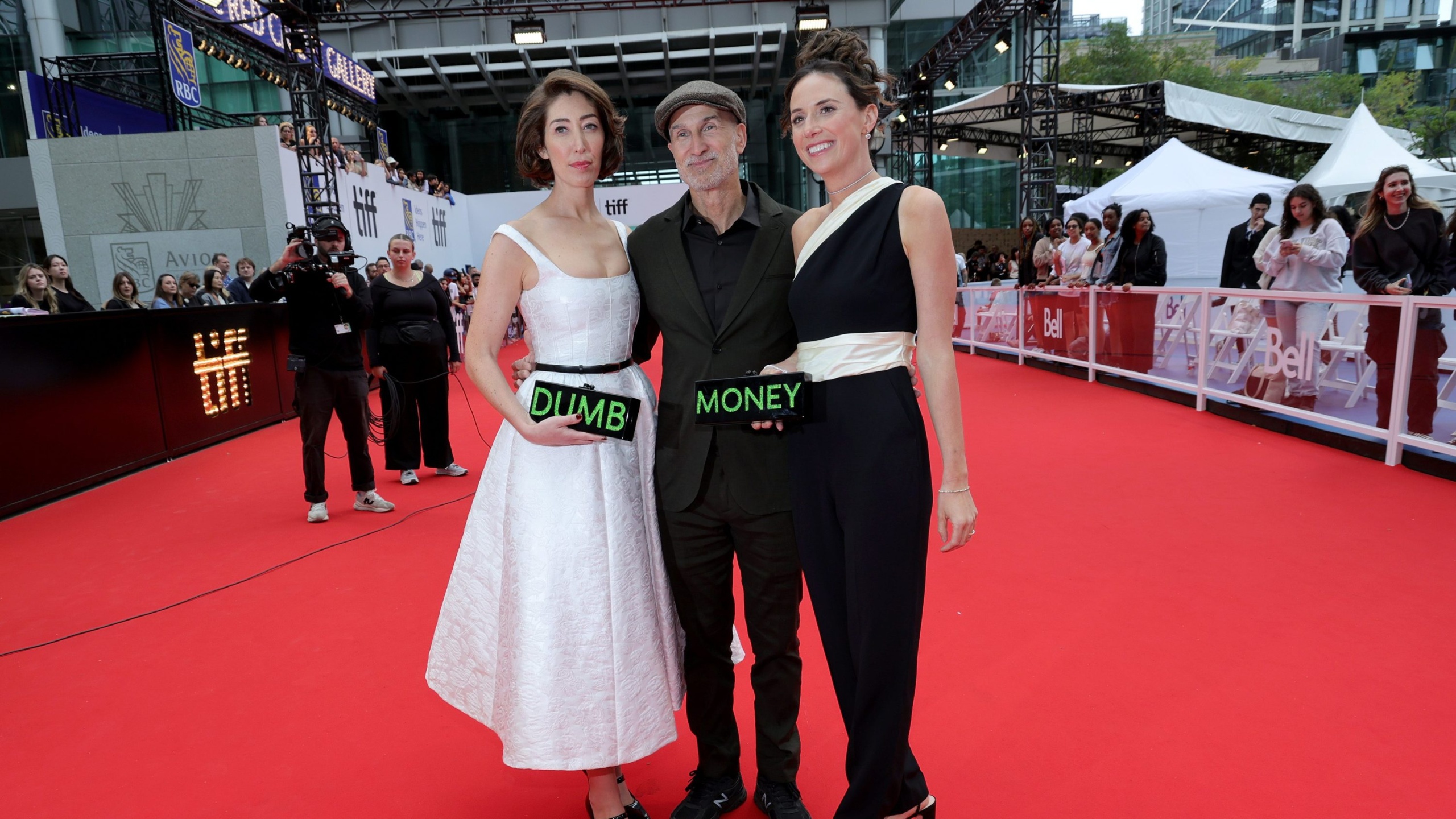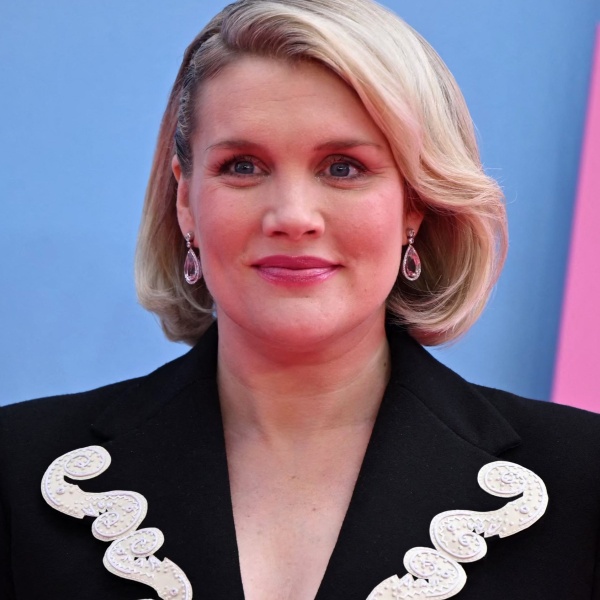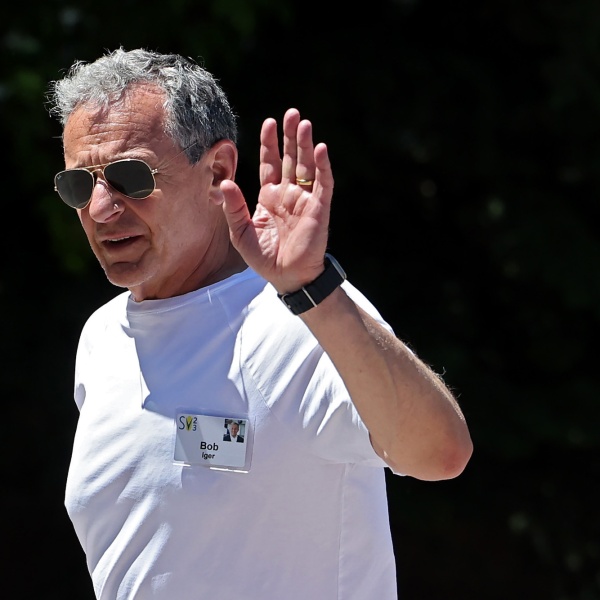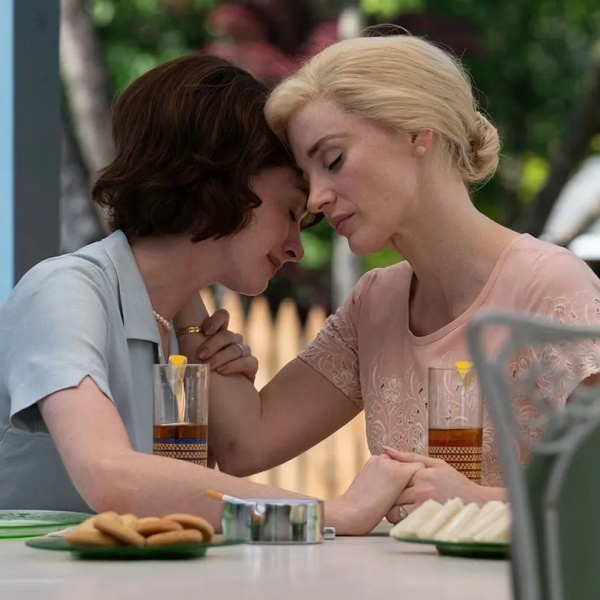[Editor’s note: In solidarity with the WGA strike, Rebecca Angelo and Lauren Schuker Blum are only participating in interviews arranged through personal connections like this one.]
You could say that Craig Gillespie got in on the ground floor. Sort of. During the early days of the COVID lockdown — i.e., the early days of what would become the GameStop stock phenomenon that his new feature “Dumb Money” chronicles — one of the filmmaker’s sons returned home to live with Gillespie and his wife.
“He started dabbling in the stock exchange. He was looking for opportunities everywhere,” Gillespie said in a recent interview with IndieWire. “He found WallStreetBets and started following, and he was on there for months prior to the GameStop thing. He was in it, as it was happening in real-time. He’d be around the house, like, ‘Hey, Elon Musk just tweeted GameStonk, people are freaking out. Mark Cuban just commented on it.’ So you started to feel like it was starting to become something.”
Gillespie had a front-row seat to what would become his latest film, the ripped-from-the-headlines dramedy “Dumb Money.” The Sony film, which debuted at TIFF last week in advance of a tiered release that kicks off this week, follows a cast of characters. All are based on real people who found themselves in the eye of the “GameStonk” storm, which saw the stock turn into a financial dynamo, thanks to the involvement of a community of everyday people, armed with some serious social media heft.
That includes Paul Dano as unlikely stock guru and Reddit king Keith Gill (aka Roaring Kitty), his shiftless brother Kevin (Pete Davidson), in-debt nurse Jenny (America Ferrera), whipsmart GameStock employee Marcus, and eager college students Harmony and Riri (Talia Ryder and Myha’la Herrold), plus Wall Street baddies like Melvin Capital founder Gabe Plotkin (Seth Rogen), Citadel CEO Ken Griffin (Nick Offerman), and the Robinhood co-founders (Sebastian Stan and Rushi Kota). It’s the Roaring Kitty acolytes and retail traders (armed with their titular “dumb money”) versus the suits in a very entertaining (and yes, very true) story that isn’t even over today.
“It started getting very intense, obviously, in that two weeks when [the stock] went from $20 to $400,” Gillespie said. “It was very much a nightly dinner conversation, similar to [what we see] in the film, where it’s like, we hear how much he’s up, and we’re like, ‘So what are you doing? Are you going to sell? What’s going on?’ And it’s just like, ‘I got it. Don’t worry.’”
Gillespie’s son sold his GameStock the day before the online trading app Robinhood froze its buy option (a major moment in both real life and the film, and one that sets off an insane series of events and upheavals). “The stock craters, and then the outrage, and the frustration, and [then it’s] him telling me the blow-by-blows in the community, and this sense of the system being rigged, and all the theories happening,” Gillespie said. “It just bloomed.”

And it wasn’t just a topic of conversation around the Gillespie household: The director also found himself talking about the phenomenon with screenwriters Rebecca Angelo and Lauren Schuker Blum, with whom he was working on another, unrelated project at the time. The former Wall Street Journal reporters turned screenwriting duo were also writing a script about whatever the hell was happening with GameStop, WallStreetBets, and Roaring Kitty.
“It came across our radar the same way any news story does, and we were like, ‘What’s going on with GameStop? That store that I used to go to in the ‘90s?,’” Angelo said in a recent interview with IndieWire. “But Hollywood moves so fast, and all of a sudden, there were nine competing projects and we got a call that maybe we should look into it a bit. And, almost immediately, we recognized that this was very different from the usual story-of-the-week style fare.”
It wasn’t just a story about something wacky happening in the news. There was something else there. “It seems superficially to be about a stock price going up and down, but it really tells us so much about why we are where we are as a culture, and it’s an opportunity to do a piece that has a kind of urgency,” Angelo said. “Certainly, we as members of the Writers Guild, feel a tremendous urgency to this crusade for transparency that systems cannot be fair unless they are transparent. There’s also a timeless quality to the story, it really is a human story, an emotional story, a story about people feeling small and coming together to be part of something bigger than themselves.”
When Gillespie got Angelo and Schuker Blum’s script, he was all in. “It’s such a complicated story that they managed to tell in a beautifully eloquent way, multiple storylines, characters that you’re completely invested in, and particularly all of our Reddit users,” Gillespie said. “That intensity that I felt living with my son, I could immediately see the energy and the intensity [in their script].”
The film is the first of Angelo and Schuker Blum’s scripts to be made for the big screen (they’ve written plenty, they told IndieWire, and they’re hoping their brand of smart, adult dramedy is on the upswing), but it’s also emblematic of their ability to combine real-life stakes with high-energy entertainment (consider their first credit: staff writers on “Orange Is the New Black”). Like the people in the film, they got deep, quickly.
“When we were researching it, we were watching these TikToks and realizing this is a movement that is by the people, for the people. It wasn’t as if they were going to experts learn about what a short squeeze was,” Schuker Blum said.

Angelo added, “They were teaching each other. I think a lot of what happens with Wall Street is that it’s deliberately opaque and it seems so byzantine and complex that there’s no point in even engaging, and what this movement did was completely belie that. These concepts are not so impossible that you can’t understand them. They taught each other in really engaging, entertaining ways.”
And the story was changing all the time, even as the duo was working on numerous drafts of their script. That appealed to Gillespie, who has spent the past few years making his mark in wild true-life tales like this one, from “I, Tonya” to “Pam & Tommy.”
“I tend to work very quickly, in a sort of spontaneous kind of way. They wrote a beautiful script and it was working very well, but then things kept changing,” Gillespie said. “It was all in real-time as they were writing it. When I came on [board the project], one of the first things that came up with Keith Gill is his [upcoming] testimony at Congress. They were going after him as a scapegoat, and then to see him lean in and hold his ground, I was like, ‘Guys, this is a natural entry into our film.’”
Despite their sprawling cast of characters, it’s Keith who forms the heart and the spine of the story. “In addition to the films that we often get compared to, like ‘The Big Short’ and ‘Moneyball,’ we looked to Frank Capra for the populist cinematic tradition in Hollywood,” Angelo said. “One thing that was great about this story that differentiates it from other populist-driven news events is that it feels like, often with online populism, you see a narcissist or a sociopath emerge as the leader of that movement. What’s so incredible about Keith Gill and about the Roaring Kitty character is that he’s just not that. He’s the opposite of that.”
So, who could possibly be Roaring Kitty? Probably the guy most willing to plunge face-first into the Roaring Kitty mythos, from his ever-present banana and kitty accouterment to a genuine love for getting things right. (Hint: It’s Paul Dano.)

“He approaches it with such intelligence,” Gillespie said of his star. “We had a very short prep, six weeks, so every week, we’d get together and start going through his character and the journey. He was doing copious amounts of research himself.”
Schuker Blum added, “His integrity as an actor is incredible. He was the guardian at Roaring Kitty on set. He watched all of the videos that are online.” (Added Angelo with a laugh: “He walked around New York City, just playing Keith in his head all the time.”)
The film shot in the autumn of 2022, and even then, things were still moving, changing, evolving. “It’d be like, ‘Hey, so right now in the film, Keith’s just lost $30 million in 48 hours, so what’s happening in the house? What’s the dialogue?,” Gillespie said of working with Dano. “And so I’ll call Rebecca and Lauren and say, ‘We need to scene where this happens.’”
He didn’t have to call too far. “We were on set every day. We were part of editing. We have been basically rewriting this movie, whether it’s editing or after test screenings on set, really every day for three years,” Schuker Blum said. “I think some directors take a script and never want to see the writer again, and one of the joys of working with Craig is he let us expand the role of writer on this movie.”
Gillespie lauds the pair for “how quickly and nimble they can be, and how smart they are with the work.” That’s not all. “This was such a complicated thing, because they had to fact-check everything,” he said. “They had to verify it all, because we’re dealing with real figures, large corporations, and we had to be very, very specific, and show where all of this information is coming from.”
They are, after all, journalists. “Our goal is to get this story right and to tell the truth,” Schuker Blum said. Angelo added, “That’s the only note we ever got from the powers that be, we were honestly shocked that they didn’t try to pick apart the movie, they said, as long as it’s true, we stand behind it. And we worked really hard to make sure that the story is true.”
Gillespie, Angelo, and Schuker Blum all point to the very real people who inspired their film as essential guideposts. But there’s something bigger here, something that stretches far beyond Reddit and GameStonk and Robinhood and TikTok.
“I have noticed there’s this theme — that is not deliberate — where I am attracted to outsiders, or underdogs, people who have been marginalized, and then giving them agency,” Gillespie said. “These stories happen because you have ordinary people who have been thrust into extraordinary circumstances.”
That the film is entertaining and funny and a great watch with a big crowd helps, too, but the trio are fully aware of the delicate balance of this story, one that had — and still has — winners and losers.
“In everything we do, but especially in this, we want people to leave at least 51 percent optimistic, even if they’re 49 percent pessimistic,” Angelo said. “It’s important to tell stories like this, even if they are just a quick spark of light. Memorializing them and committing them to film is exactly the point of cinema. I think cynics will say, ‘Wall Street’s gonna Wall Street, they’ll find ways to get around the rules, the system is broken.’ But this is a moment when a group of people, millions of people who used to be invisible, ceased to be invisible. Wall Street will never be able to condescend to and ignore these people the same way that they have.”
That’s a message that seems more timely than ever. “We want people to walk out and feel the power of collective action, which is all around us and definitely in Hollywood right now,” Schuker Blum said. “We [want people to] feel like if you do band together, you can change the world.”
When people walk out of the theater, Gillespie is hoping they’ll see the big picture, a story that is still being written even today. “I want people to be activated. I want people to, as a community, realize that there’s strength in numbers and you can make a difference,” Gillespie said. “There’s one line from a reporter at the end of the film where he’s like, ‘It used to be a fringe group around the markets, and now they can actually move markets.’ There’s been a reckoning. Obviously, it’s going on with the strikes now, and people can make a difference. With this community, you can actually change things.”
As for Gillespie’s son? “I think he’s backed off a little bit on the stocks,” the director said. “Now he’s going more [for the] long-term investments than the short stuff, but yeah, he’s still there.”
A Sony Pictures release, “Dumb Money” opens in select theaters on Friday, September 15 before expanding nationally on Friday, September 29.





